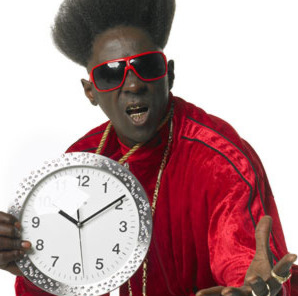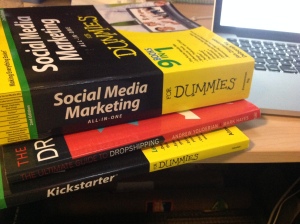Getting your college degree is a huge milestone, and you worked hard to accomplish it. So why does working in hospitality suck so much for new graduates?
For six years, I went to college full-time while bartending…full-time. It was brutal and harrowing, and certainly took a toll on my overall well-being. I was perpetually exhausted, I missed every big party/holiday/vacation with my friends, and was so constantly busy that healthy eating and exercise took a back seat to studying and writing papers. I watched the second half of my twenties disappear in the blink of an eye.
However, I recently finished grad school and got that magic “Do Not Bend” envelope in the mail with my masters degree. The next day, I strolled into my restaurant job wearing my newly-framed degree around my neck like Flavor Flav, ate onion rings off customers’ plates, rang in thirty raspberry mojitos on a fake ticket, deleted our OpenTable reservations for the next two months, changed the classical background music to “Highway to the Danger Zone” (on loop), and gave the general manger the finger as I exited with two trays of Halibut Oscar. After all, I’m a college grad now, and this industry is for losers! You can mail my last paycheck to my new address on Wall Street, suckas.

That’s how it should have happened, anyway. In reality, I’m still slingin’ drinks night after night, almost as if nothing changed. Except that, strangely, bartending is way worse now that I have my degree. Here’s five reasons why bartending is harder after you finish college:
1. You’re (officially) smarter than your boss.
I’ve had remarkably stupid managers during my time in this business. I’ve had general managers – whom are master sommeliers with decades of experience – unable to compose a simple memo. I’ve seen successful restaurant owners send out weekly emails to guests with only two or three words spelled correctly. I once had the bar manager of an Irish pub tell me to walk around with a bottle of 99 Bananas schnapps and solicit every guest for five dollar shots. I’ve even had a chef explain that keeping ducks in cages with feeding tubes is “good for them”, because fois gras only comes from “happy ducks”. It’s harder to swallow all this when you have a degree as physical proof that you are smarter than the people ordering you around.
2. You’re serving drinks to people who make twice as much money as you (and work half as hard).
Not too long ago, I had a four top of mid-40’s white guys in suits in my lounge. It was 2pm on a Tuesday, and they ordered vodka martinis (well, first they ordered beers we don’t have, then wine we don’t have, then vodkas we don’t have, because they were all way too busy to look at the menu I put in front of their faces and had asked them several times to read). It was clear that these masters of the universe had absolutely no more responsibilities for the day. Two rounds (and several frat-level misogynistic jokes) later, one of these idiots asked my opinion about the football team for the sports rival of my grad school. I explained that, since I went to a competing university, I didn’t care. They asked what I was getting my degree in (clearly expecting a response of “Associates in A/C Repair”); I responded that I was finishing up my MPA before getting my graduate certificate in Environmental Resource Management. After a brief silence, one of the douchebags actually raised his glass to me and said “and now you’re a bartender”.

3. You’re no longer surrounded by thousands of datable people your age.
If Tinder was a physical place, it would be a college campus. Generally speaking, everyone is in the same age group, single (ish), drunk, and away from the rules and limitations of home. Throw on some coral shorts and Ray-bans, and you have a 99% chance of at least a few romantic encounters – even as a freshman. When you graduate, it becomes suddenly and shockingly apparent that world is now gone, and you will be forced to meet people from the same dating pool as everyone else (and we all know that public pools just aren’t as much fun as the Playboy grotto). Enjoy that fancy new diploma, because now you’re stuck dating either the hostess on Lithium or getting rejected by your suddenly-not-there-as-much bar regulars.
4. Student loans are coming due.
Suddenly that weekend boys trip to Vancouver you paid for with student loans doesn’t seem like such a bright idea at 7.9% interest.
5. You catch yourself looking down on people who are just like you were.
We’ve all had the friend who successfully quit smoking (for six months one time), who would jump all over you when you lit up, wouldn’t stop at the gas station before the party so you could grab a pack, and who after a couple beers would actually slap cigarettes out of your mouth. Of course, they loudly declared they did it was because “they care about you” and want to show you that it’s possible to quit, even if you hate them for it.
Screw that guy. I did hate him for it. And since a graduated, I catch myself acting like him all the time.
Most people start in the restaurant industry at an early age, a stage in your life when everything is in front of you. You’re 19 or 20 years old, taking a few community college classes here and there, and most of your time is spent planning the theme for the next pool party at your (shitty) apartment complex, flirting with coworkers, doing whippets in the walk-in cooler and publicly declaring how you will never get old. I know this because I was that guy and, in all honestly, that life ruled.

Eventually, I grew up a bit, got a plan together, and traded backyard barbecues for classes in Sociology and Humanities. I worked my ass off, making the conscious decision to give up a delightful life of youthful alcoholism (well, almost) for something that would get my ass out of this industry. The hospitality lifestyle is actually perfect for this strategy – you can go to class during the day, make enough money on the nights and weekends to pay for books and have a little fun, then get out into the Real World. Anyone still in the industry in their 30’s was just lazy, or stupid, or satisfied serving Endless Fries to tourists, or naive enough to get sucked into the dream vacuum that is restaurant management. Not me, man. Not this guy.
Now I’m 31 and still in the grind. Those 20 year olds running around my restaurant, so full of vitality (and stolen cocktails from service bar), so invincible, so happy – they just piss me off. I should feel paternalistic, giving them pointers on how to have fun and work hard simultaneously, how to make more money at work, how to have good study habits, how to set up your 30’s as the best decade of your life. But all I want to do is metaphorically slap the cigarettes out of their mouths, grab their shoulders and shake the optimism from their faces. I so often find myself angry at their juvenile behavior, their complaints about being “epically hungover”, their attempts to get a shift covered because they hadn’t started a paper that was due the next day. But I catch my hypocrisies, remind myself that’s exactly who I was, and that they will probably turn out ok like I did. I was no saint, I just made terrible decisions less often. It’s just like thinking all new music blows, the original Batman movies were best, and that 1996 was just, like, the best year ever. Those young servers slumping around my restaurant will feel the same after they graduate, and the world’s not going to be a better place if they get hypocritical and hate the fresh cohort behind them. But every shift I work post-graduation, I hate my young coworkers just a little bit more.
Especially when they don’t invite me to their pool parties.
Neil Ratliff is a fifteen-year veteran of the service industry and owner of RestWants.com. You can email him (please do!) at RestWants@gmail.com








